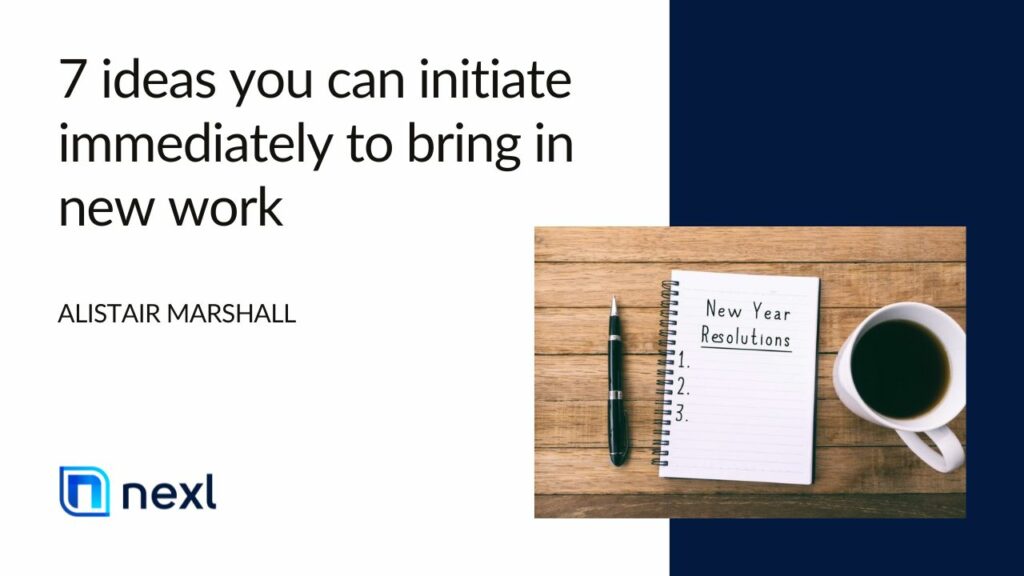When doing small has big impact
COVID-19: ‘small’ becomes big. Who knew that a few cases would turn into a pandemic of 40 million?
In January, the World Health Organisation tweeted about a cluster of pneumonia cases in China. But no one did much. Borders stayed open. People went about their business.
The tweets that follow read like a horror movie. 40 million infections. Out of 105 countries, 90% said they suffered serious disruption. An unbelievable turn of events if you think about it.
If lawyers ever needed a self-awareness check, this is it: little problems that you ignore today can snowball into enormous, headache-inducing ones tomorrow.
The kind that hit so hard that you’ll wonder why you didn’t just do something earlier on.
Which brings me to my point. There is one problem that lawyers everywhere, from Mumbai to Michigan, LOVE to ignore – but REALLY shouldn’t.
Every lawyer has this ‘small’ problem
What is a lawyer’s most easily-ignored ‘small’ problem?
The problem of upskilling after leaving law school. Compulsory or optional, it doesn’t matter. It’s the same at the end of the day: easy to delay and easy to forget.
Even the most passionate lawyers find it hard to upskill. The demands of the courts, your clients and your boss will always come first.
And even if you’re organised enough to spare time each week, you still need to pick the ‘right’ skills.
This is easy for consultants, who are paid to identify and train lawyers at huge international law firms in the next big trends using market research, personal networks, and years of experience.
But most lawyers don’t have time to do that. So they don’t upskill at all.
5 ‘big’ skills for lawyers in 2021
Sure, you could ignore upskilling. But eventually, when lawyers with those skills set up shop in your town (they will), you won’t be able to keep up.
Your services will be less appealing. You might have to work harder and longer to do the same things – assuming you’re able to offer the same things they do.
And if the gap is big enough there’s every chance you’d get trapped. Too much to learn; too out-of-date to win new business.
I’d call that an ‘enormous, headache-inducing problem’.
The good news is that it’s early days for the post-COVID transformation of law. You can still get an edge on the digitalised, globalised legal market of tomorrow.
How? Start by getting up to speed on the 5 digital lawyer skills that will be big in 2021:
1. Design Thinking
It’s no mistake that this is first on our list. For years, lawyers have been under pressure to justify their fees and present work in a simpler, more practical way.
The COVID pandemic cut revenues across all industries – you can be sure this trend will continue.
Design thinking aims to solve that problem. It flips the dated profession of law on its head by asking the lawyer to embrace a designer’s approach.
It focuses on usability, efficiency and practicality.
This can lead to far better advice and client satisfaction.
A fantastic example is the Big 4 accounting firms. Regardless of what you think about their style, there’s no denying that their clients are coming back to them.
Their work deals with complex problems.
But because they rely heavily on visual aids, presentations, and short-version summaries, their work is extremely readable.
The client feels like the advice is better, trusts it more, and is more likely to return.
No wonder Stanford Law School – one of the world’s best – decided to start its own ‘Legal Design Lab’.
It uses ‘human-centered design and agile development methodology to design new solutions for legal services.’
Tip: Margaret Hagan of Stanford’s Legal Design Lab has written a free book called ‘Law by Design’. It is an excellent way to dive into legal design thinking without prior knowledge.
2. Marketing
Where to start? From publishing articles online to remote networking, the marketing world has leapt ahead of all others when it comes to the post-COVID economy.
NEXL CEO Phil Turner puts it best: ‘In a time of uncertainty, one thing is certain: lawyers and firms with the best relationships are the ones that will win the work.’
Gone are the days when lawyers could rely on meeting people around town – or flying to another city to grab lunch, play golf, or have a drink.
After COVID, the firm marketing game has changed.
Digital marketing is king.
Think tasteful, personalised gestures; well-timed online catchups; a strong social media and PR presence; thought leadership.
These are all tools that are familiar to a good marketer.
Lawyers that have a marketing brain are at an incredible advantage – whether they’re partners looking to secure more growth; or more junior lawyers looking to advance.
Tip: Marketing resources are extensive, and you don’t need to pay to get started. HubSpot Academy has hours of detailed, regularly updated marketing training courses – and it’s all 100% free.
3. Data analysis
Okay, bear with me. Yes, the law is about words not numbers, but data analysis is going to be useful for almost every lawyer – yes, even if you work in criminal law or environmental law.
And the reason is simple: data isn’t just numbers.
Data is information. So it includes words, documents, photographs, statistics…and numbers.
If you think about it, there’s no area of law where the ability to quickly analyse data wouldn’t help.
A criminal defence lawyer might analyse statistics to come to conclusions about behaviour or probability.
A construction lawyer might summarise the penalties their client might pay under a contract using an automated worksheet and graph.
And a divorce lawyer might need to accurately audit a large number of bank statements.
These are all made possible through basic skills in data analysis and presentation.
And they can all be done on the computers that most lawyers already have. In fact, you’ve probably used one of the most powerful data analysis tools in the world: Microsoft Excel.
Tip: Resources aren’t typically labelled ‘for lawyers’, but there are many free resources for Microsoft Excel. Functions like pivot tables, VLOOKUP, or basic graph functions are of huge benefit for lawyers.
4. Automation
What is it? The use of software to replace a human in any part of a task that a human would do. While this might seem a bit of a stretch – the fact is that legal automation is blowing up.
Gartner reported that automation will eliminate up to 1.8 million jobs (in all industries – not just law) by the end of 2020.
There are now dozens, if not hundreds, of apps that speed up or replace a lawyer’s effort. One example is programs that automate drafting/writing. Think of Grammarly.
Grammarly can check your spelling in real-time and actively suggest words or parts of a sentence to make you sound better. The app improves your writing without any effort.
Law-specific drafting tools are even more powerful.
Many offer the ability to suggest clauses of a contract or analyse whether a term is disadvantageous or advantageous to your client.
These tools are cheaper and more reliable than old-fashioned alternatives.
In other words – it is definitely a good idea to understand the principles behind automation.
Tip: Many automation providers provide free trials, however, it can be hard to know which will be useful. Rather than guessing, ask your local lawyer group or lawyers working in the same area (particularly if they’re known for being efficient). This will show you what is useful – and what isn’t.
5. Dual Languages
This is easily the most time-consuming on the list. But it also has the possibility to deliver some of the highest rewards – both professional and personal – out of any of these skills.
In an increasingly globalised world, most parts of the world see more cross-border transactions than ever before.
Language skills are obviously beneficial when dealing with overseas clients/lawyers.
If you do not deal with these transactions, there is a second reason: local clients who speak a certain language will always trust and prefer someone who is fluent in that language.
Depending on your area, there may be an opportunity to distinguish yourself (and your firm) from the competition and gain clients who you never thought you would.
Along with the fact that language is a benefit for your personal life – there is certainly a good reason to start learning a language today.
Tip: Apps like duolingo, Rosetta Stone, and YouTube have made language learning fun and easier than ever. The options are all very cheap (and often free) – there’s no excuse not to.
I’ll leave you with a thought. In FY2019, EY (Ernst & Young) invested $530 million to deliver 54 hours of company-paid upskilling to every employee.
Consultants like EY only spend money when they believe they’ll get a return on their money.
If EY is happy to pay $530 million, what does that say about the value of upskilling?
I’ll let you draw your own conclusion.
Now, like we said, you don’t need to be afraid of the big boys. Nothing is stopping you from putting in 54 hours this year (just 1 hour per week).
And if it’s something like a language, it doesn’t need to be ‘work’. Think of it as a personal goal.
It’s all up to you. Time to give these 5 digital skills the time they deserve.
At NEXL we believe that digital contact management and networking is the best way for lawyers to get an edge in their careers: create your free profile today to automate your contact management while building a network from over 5,000 lawyers around the world






